We use cookies to make your experience better. To comply with the new e-Privacy directive, we need to ask for your consent to set the cookies. Learn more.
Plant now - enjoy in Spring
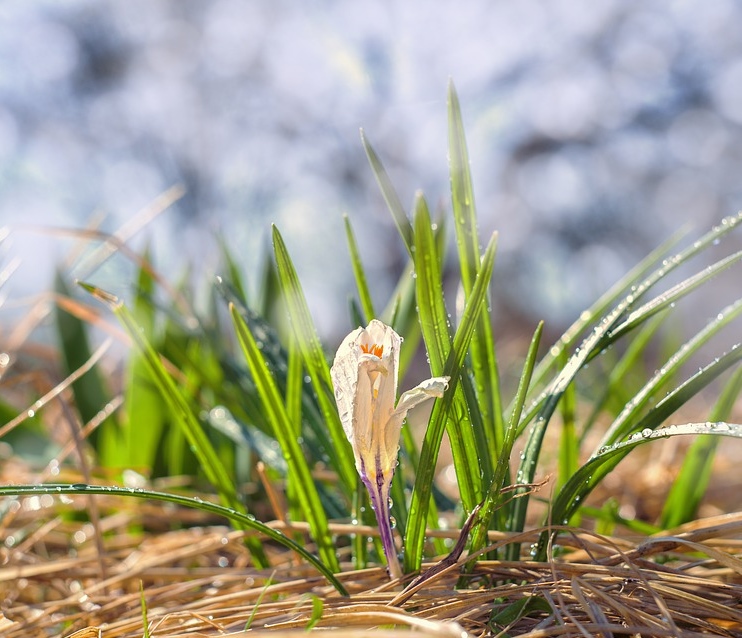
It's October - still lots to harvest in the garden - and lots to plant NOW for enjoying next year. Optimism keeps the winter blues away!
Overwintering Organic Garlic
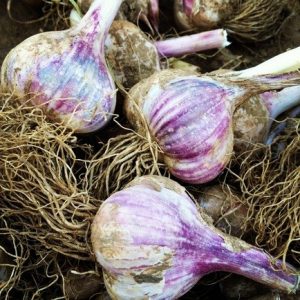
Garlic comes from the mountainous regions of Central Asia and has adapted to extreme changes in temperature including very cold nights. As a result, garlic performs best when subjected to a cold period of one or two months. Ground temperatures of between 0 — 10º celsius encourages optimum clove formation making it very suited to our Irish climate and autumn planting often produces better crops than garlic sown in spring. Garlic enjoys a long growing season, so if planted in October up to early November, the harvest usually occurs in August and the bulbs are much bigger. However, garlic can be sown until Christmas and will still have plenty of time to produce a great crop.
We have three varieties of overwintering garlic - Vallelado, Messidor and Morado. They are certified Organic and disease free. (Avoid planting supermarket garlic as, chances are, it has come from China and will not adapt to our growing conditions. Neither will it be certified disease free.)
Planting Overwintering Garlic
Choose an open, sunny site and well-drained soil. High humidity around the foliage and wet soils make the crop more prone to disease. Prior to planting, improve the soil’s structure, moisture retention and nutrient levels by incorporating organic matter. Apply about two bucketfuls of well-rotted manure or other organic matter such as garden compost every square metre. Avoid using fresh manure. Over-wintered garlic greatly benefits from an application of nitrogen-rich fertiliser in late winter.
Garlic is planted from bulb segments (cloves), so break up the bulb carefully into individual segments prior to planting. Make sure that the cloves are planted the right way up: the flatter basal plate should be facing downwards. Allow 15cm between individual cloves and 30cm between rows. Plant the cloves so the tips are 2.5cm below soil surface. Deeper planting can encourage better yields on light soils, but do not plant deeply on heavy soils
Keep well weeded over winter - garlic doesn't like competition. It will also allow better air circulation through the crop.
Autumn planting Organic Onions
Autumn varieties of onions, such as Radar or Troy, grow slowly over winter to give you a crop of fresh onions the following May or June, just as your stored onions will have started to sprout. It is advisable to follow a crop rotation.
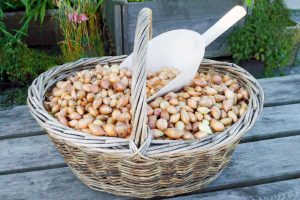
Overwintering onions are often called ‘Japanese’ onions (because they were first developed in Japan), these can be sown outside from late September up to early November. The main benefit of growing overwintering onions is that you will have a crop of onions ready for eating about a month before your main crop is ready for harvest.
Planting Overwintering Onions
Onions should be grown in full sun, in fertile, moist and well drained soil. Onions - like most vegetables - are quite a demanding crop. A good all-round fertilizer is ideal for them. Avoid planting onions in soil that’s been freshly manured or they will be too lush. Plant the sets about a 1-1.5cm deep and 3 - 5 cm apart with 30 - 40cm between the rows.
Over-wintered onions greatly benefit from an application of nitrogen-rich fertilizer in late winter. This not only enhances growth but can also suppress premature flowering.
- Keep well weeded over winter - onions don't like competition. It will also allow better air circulation through the crop.
- To prevent birds pulling out your sets, cover them with a fleece or net, which should be removed when the first shoots appear.
- If planting in a tunnel, try to avoid overhead irrigation as it can encourage fungal diseases.
Organic Flower Bulbs
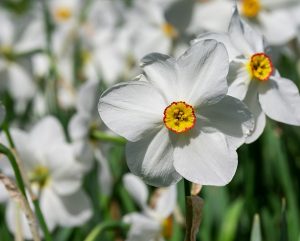
For a blast of fresh Spring colour and a clean conscience chose organic flower bulbs. Conventionally produced flower bulbs are one of the most polluted crops in horticulture and are heavily sprayed with Neonicotinoids. Research has focussed on the impact of these insecticides on honey bees and other insects. The chemicals have been found to impair bees’ communication, homing and foraging ability, flight activity and immune systems. These all have an impact on the bees' ability to survive. Neonicotinoids also have a huge effect on butterflies, moths, insects, birds, fish and soil life. Planting organic bulbs will ensure your garden is enjoyed by all its users.
Its a win win situation - colour for you, good health for all the insects that visit your garden. We have an ever expanding range of autumn planting organic bulbs and now stock over 45 different varieties - Crocus, Narcissus, Allium, Tulip, Hyacinth and Fritillarias. Something for everyone. All bulbs like fertile soil containing plenty of organic matter and Spring sunshine!
Seeds
There's always something to sow. If you have a cold frame or tunnel there is still time to sow leaf mustards ,
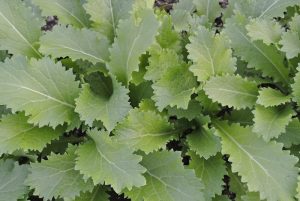
Winter pursalane, winter lettuce, Lambs lettuce and coriander. For a head start on next year you can try sweet peas and Aquadulce broad beans.
Green Manures
Winter green manures will keep the soil warm and covered over the winter as well as improving soil structure and providing protection for insects. Green manures also improve the fertility and drainage of the soil and add lots of organic matter which is great for all soil micro-organisms. The best green manure to sow as we head into October would be Rye as it germinates at low temperatures. Benefits of Rye as a winter green manure
- Rye is an excellent nitrogen lifter and it can lift and release up to 90% of nitrate to the next crop.
- Can be sown latest of all greenmanures, even in October, November.
- Deep roots help to break up heavy soils and improve soil structure.
- Suppresses weeds.
- It suits most soils and copes especially well with heavy clay ones.
- Dig into the soil in early spring - the foliage can be strimmed off and composted and the roots turned in with a sharp spade

